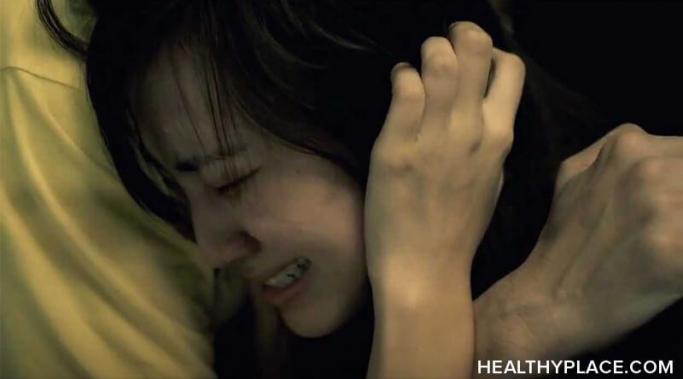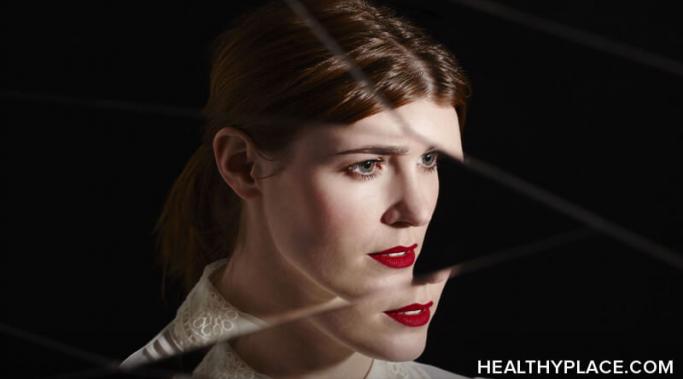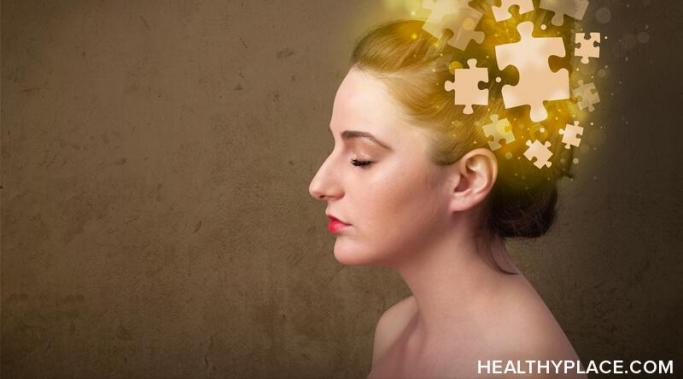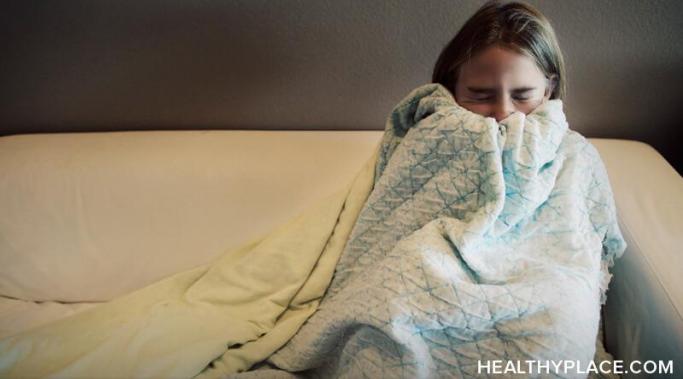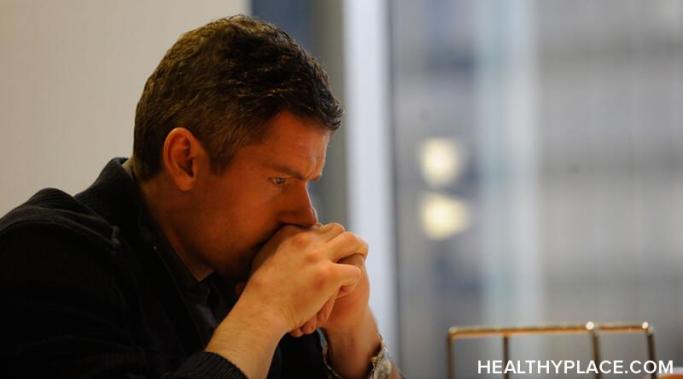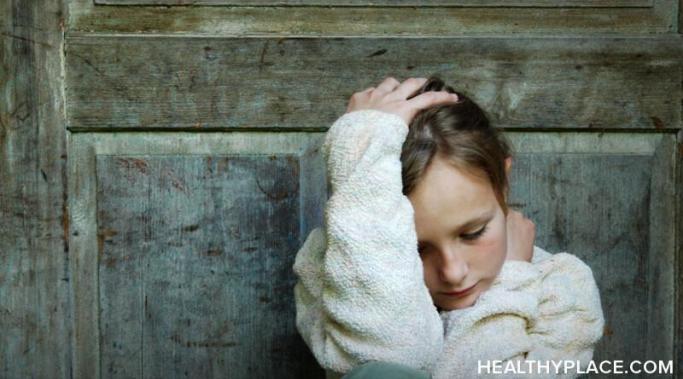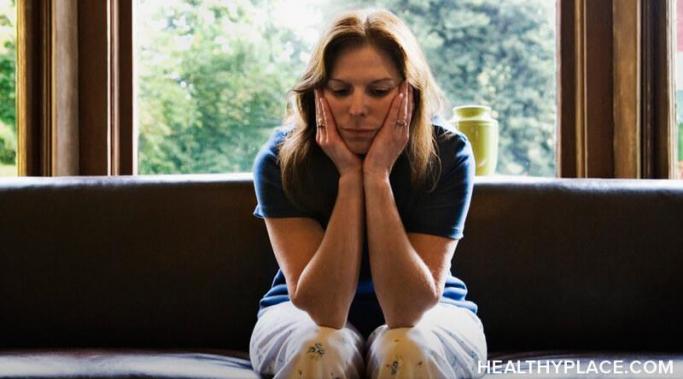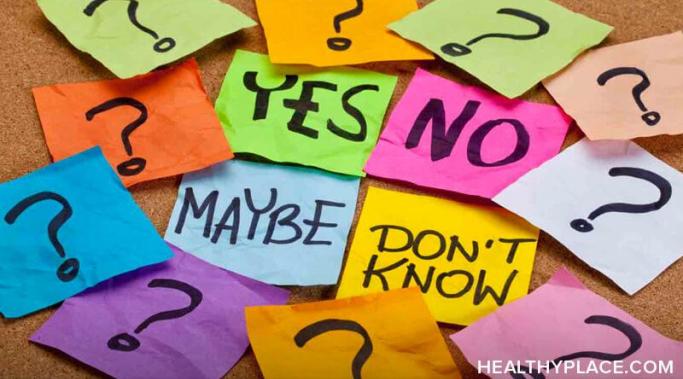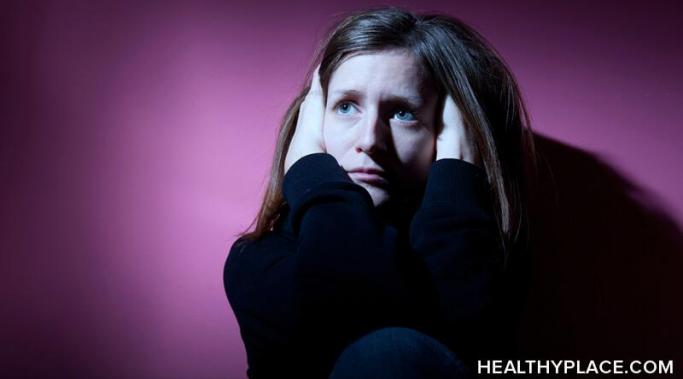I've been in recovery from mental illness for several years now because recovery is a slow, and often lifelong, process. There are many aspects of recovery that I have a pretty good handle on at this point, like opening up in therapy and sharing my experiences with others to make all of us feel a little less alone, but one part that still throws me for a loop every time is the "random" breakdowns in mental health recovery.
Recovery Issues
One of the most important things I've learned throughout my recovery is that I'm not just recovering from depression and anxiety; I am recovering from negative core beliefs about myself. Now that I have my depression and anxiety managed through medication and cognitive behavioral therapy (CBT), it's time to start changing those negative core beliefs and healing from the damage they cause.
Today in mental health recovery, I'm experiencing dissociation. What is dissociation? Well, for me, I feel oddly disconnected from my body, and like I'm floating through a dream in my real life. I am experiencing dissociation now, and rather than waiting until I feel better, I've decided to make a post in the moment to really show you what it's like.
Growing up, maladaptive daydreaming was a huge part of my life. Of course, I didn't realize it was maladaptive until I went off to college and the daydreams just sort of stopped. I missed them a lot at first, and there are times even now, several years into my recovery from depression and anxiety, that I miss my daydreams.
Many people who experience periods also experience depression in the form of mood fluctuations that can range anywhere from frustrating to debilitating. If you're like me and you're in recovery from a mood disorder like depression, these monthly fluctuations can be a real source of fear and hopelessness.
These first 25 years of my life have been defined by shame; but, for a long time, I thought what I was feeling was guilt, which is a very different emotion. Guilt is a signal from our minds and bodies telling us that something we've done does not line up with our internal moral code. It is focused on our actions, and it can be used to help us grow and become people who act in accordance with our standards. Shame, on the other hand, is a totally different beast.
Learned helplessness is a phenomenon that occurs when someone repeatedly faces negative experiences that they can't control, and eventually, they stop believing they have any agency at all. It's something that sabotages my life over and over.
Are you worried about how social distancing will affect your recovery? Use these tips to keep yourself safe and healthy.
How do you determine if you're depressed or just sad? Navigating emotions while recovering from mental illness is incredibly tricky. For me, mental illness completely broke my internal emotional compass. Before I experienced depression, I could identify emotions like sadness, worry, and joy fairly easily. But after I experienced depression, it became nearly impossible to distinguish between depression and sadness or nervousness and anxiety. Even though I've been recovering for years, this is still one of my biggest struggles as a human being. Luckily, all those years in therapy have taught me a few things, and I'd like to share them with you.
Recently, I've learned that behavior that is convenient for others is not always healthy behavior for me. I was taught at a young age that my natural reactions to things were "overdramatic" or "wrong" and so I started to hide my real reactions and feelings. I got very good at doing what I was "supposed" to do and being the way I felt I was "supposed" to be. Over time, I became much more concerned with making sure my behavior was convenient for others rather than healthy for me.
